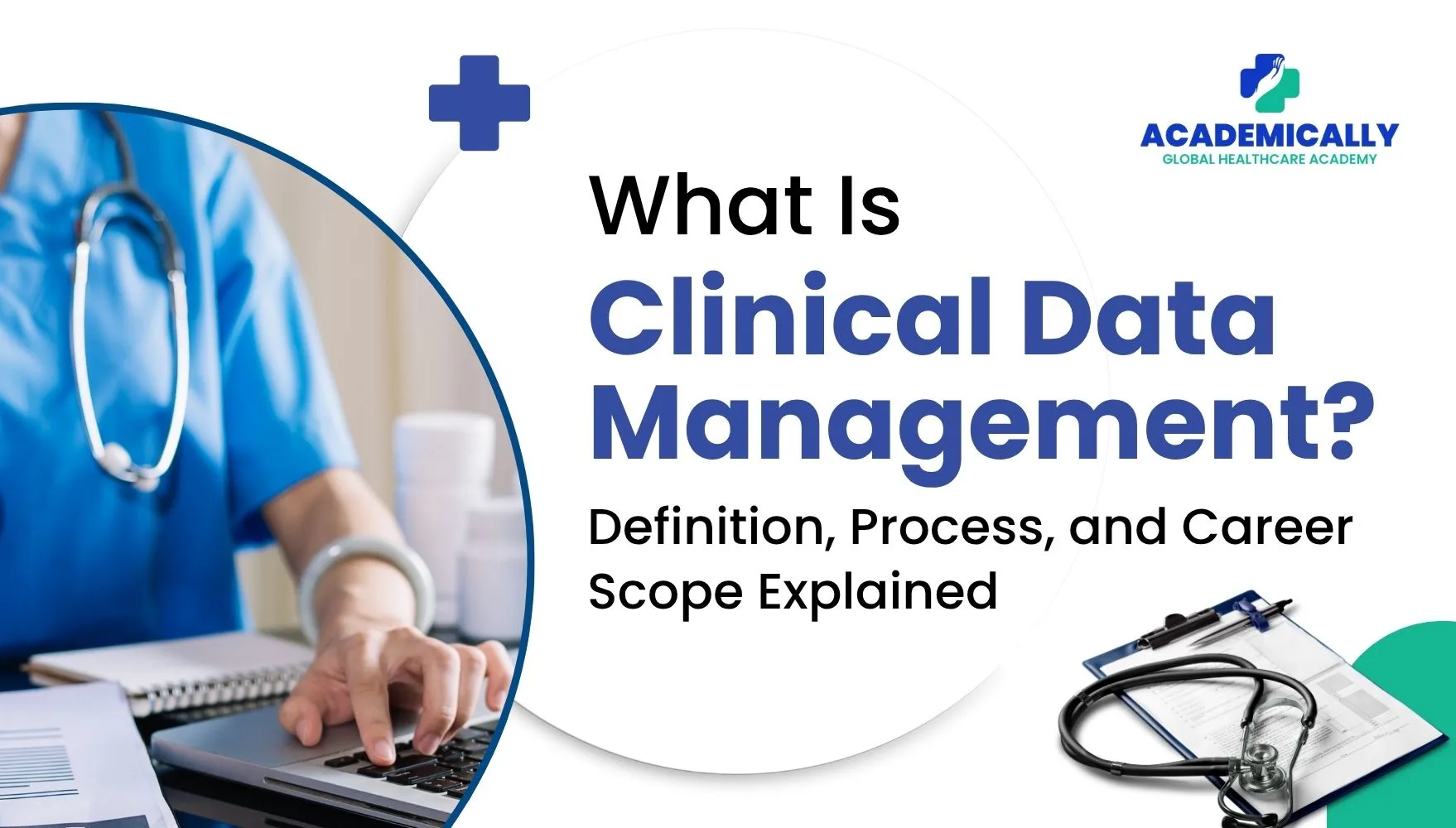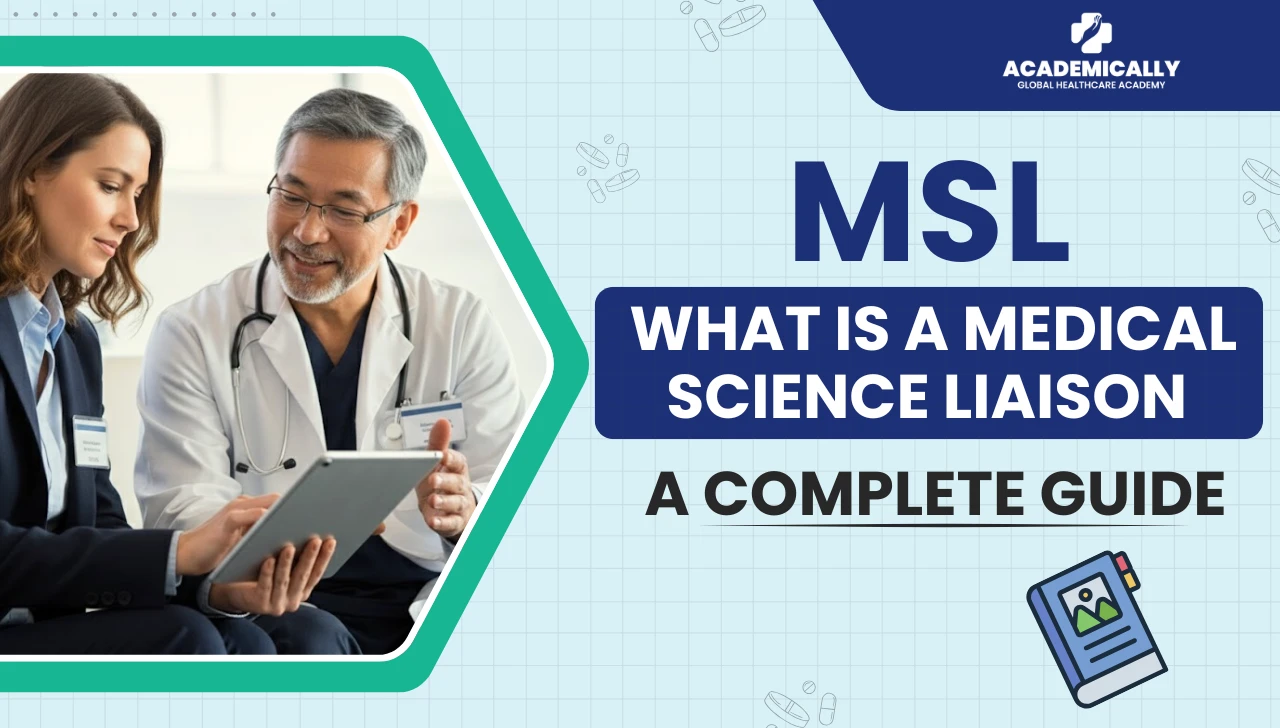The global clinical data management market is projected to surpass $8.9 billion by 2034, growing at an impressive 11–12% CAGR over the next decade. As clinical research becomes increasingly data-intensive and digitalised, the demand for skilled professionals who can collect, clean, and manage this data with precision has never been higher.
What is Clinical Data Management?
Clinical data management (CDM) is the discipline and set of processes designed to collect, validate, clean, store, and protect patient and trial-related data. It is done so that the final dataset is accurate, consistent and suitable for statistical analysis and regulatory submission. The formal clinical-research literature frames CDM as the bridge between data collection and valid scientific conclusions.
Why it matters: Regulators (FDA, EMA, ICH guidelines) require traceable, auditable and high-integrity data. Without sound CDM, clinical conclusions are vulnerable to error, delay, or rejection. WHO and other authorities emphasise data integrity as a core principle called ALCOA: Attributable, Legible, Contemporaneous, Original and Accurate.
Core Goals of Clinical Data Management
- Ensuring the recorded data reflects reality and protocol intent.
- Reducing missing or inconsistent entries.
- Maintaining electronic logs and audit trails for every change.
- Meeting ICH-GCP, FDA, EMA, and country-specific rules.
- Delivering clean, analysis-ready data on schedule so analyses and regulatory submissions aren’t delayed.
Step-by-Step Process of Clinical Data Management
We have provided a complete roadmap of the CDM workflow in a modern clinical trial programme below.
1. Protocol review & CRF (Case Report Form) design
Before any data is collected, CDM teams review the trial protocol to define what data are required. They design CRFs (paper or electronic CRFs) to collect those fields in a way that decreases entry error. This is where data dictionaries and variable definitions are born.
2. Database design & EDC setup
Clinical Data Management builds the study database, often in an EDC: Electronic Data Capture system. Examples are Medidata Rave, Oracle Clinical, REDCap, or similar. This includes programming validations, user roles, access controls and audit trails. Proper design at this stage prevents downstream headaches.
3. CRF completion & data entry
Clinicians and research staff enter data into the eCRF or send source documents for entry. In decentralised trials, data may also stream in from wearables labs or remote devices; CDM must map these feeds to study variables.
4. Data validation & discrepancy management
Automated edit identifies flag out-of-range, missing, or contradictory data points. CDM teams issue data queries (discrepancy forms) to sites, track responses, and resolve discrepancies. This back-and-forth is often the longest part of the cycle.
5. Coding & standardisation
Medical terms (adverse events, medications, medical history) are coded to standard dictionaries (e.g., MedDRA for events, WHO Drug for medications). For submission-ready datasets, data is often mapped to CDISC standards. SDTM and ADaM streamline regulatory and statistical workflows.
6. Data reconciliation
Lab data, safety reports (e.g., SAE reports) and external feeds are reconciled with database entries to ensure consistency across systems.
7. Freeze/lock & transfer for analysis
After validation and sponsor sign-off, the database is locked (no further changes without documented procedures). The cleaned dataset is transferred to statisticians for analysis and to regulatory teams for submission.
8. Archival & retention
Final datasets, audit trails and essential documents are archived in secure repositories according to regulatory retention timelines.
Tools & standards every CDM professional should know
- EDC platforms like Medidata Rave, Oracle InForm, REDCap, OpenClinica, Castor, etc.
- The standards range from CDISC (SDTM, ADaM), MedDRA, and WHO Drug.
- Built-in EDC validation, statistical scripts (SAS, R) for data checks.
- Regulatory frameworks: ICH-GCP, 21 CFR Part 11 (electronic records), GDPR.
Where does CDM fit inside the clinical trial ecosystem?
CDM collaborates with clinical operations, biostatistics, safety/pharmacovigilance, regulatory affairs, and site monitors. CDM is like a data security control. It validates inputs, prevents garbage-in/garbage-out and prepares the dataset for the statistician's analysis that ultimately drives conclusions and regulatory decisions.
Career Scope of Clinical Data Management
- Growing trial numbers & complexity: More trials (industry, investigator-initiated, device and digital trials) mean more data to manage.
- Digital health expansion: EHR exports, real-world evidence and mobile health generate new CDM needs.
- Regulatory focus on data integrity: regulators demand auditable, standardised datasets, which drives hiring of skilled CDM professionals.
Jobs available for someone pursuing a career in Clinical Data Management
- Clinical Data Coordinator
- Data Entry Operator
- Clinical Data Analyst
- Data Validation Specialist
- Clinical Data Manager
- Lead Data Manager
- Head of Data Management
- Data Management Project Manager
Transition paths: Biostatistics, Project Management, Pharmacovigilance, Clinical Operations or Regulatory Affairs.
How much Salary can you withdraw in the Clinical Data Management field?
Salaries vary by country, experience, and employer (CRO vs sponsor).
- In India, entry-level roles often start around ₹4–6 LPA.
- Mid-level roles bag up to ₹8–12 LPA.
- Senior roles pay higher than ₹10 LPA.
In abroad, you get 8x-10x higher if migrating to top-tier countries like the UK, USA, Canada, Australia, etc. Get in touch with our team for job assistance.
Skills and qualifications employers look for
Hard skills
- EDC and database setup experience (Medidata, InForm, REDCap)
- Knowledge of CDISC standards (SDTM, ADaM) and medical coding (MedDRA, WHO Drug).
- SQL, data validation scripting, basic SAS/R for quality checks (valuable)
- Understanding of GCP and 21 CFR Part 11 (electronic records)
Soft skills
- Attention to detail, methodical problem-solving
- Clear communication (query management with sites)
- Project coordination and time management
Certifications to boost your CV
- CCDM (Certified Clinical Data Manager) and vendor-specific EDC certifications
- Coursework in CDM and clinical research methods accelerates employability.
How to Break into Clinical Data Management: A Complete Roadmap
- Education: A degree in life sciences, pharmacy, statistics, or computer science is common but not mandatory.
- Build foundational knowledge: Learn clinical research basics (ICH-GCP), CDM principles, and medical terminology.
- Get hands-on with EDCs: Even free/open platforms (REDCap) provide practice.
- Learn standards: Start with MedDRA and CDISC basics.
- Practical projects: Seek internships or volunteer for data-oriented roles in research groups.
- Certify & upskill: Short courses and certificates (e.g., PG Certificate in Clinical Data Management) accelerate placement. (CTA below)
Why Employers Value Clinical Data Analysts
Employers view CDM professionals as risk reducers. They protect data quality, regulatory readiness, and timeline reliability. Organisations pay a premium for people who can:
- design robust databases quickly,
- manage decentralised data flows, and
- translate data-quality issues into concrete remediation.
Senior CDM leads also bring project and people management value and in biotech/pharma hubs, compensation reflects that.
If you’re a student, life sciences graduate, or a clinical professional looking to switch to a high-impact, data-focused role, CDM offers a rewarding blend of technical and clinical exposure. Getting practical experience with an EDC, learning CDISC basics, and completing a project-based certificate dramatically increases your employability.
If you want a structured, career-oriented path, our expert team can help you match with the best career path.





